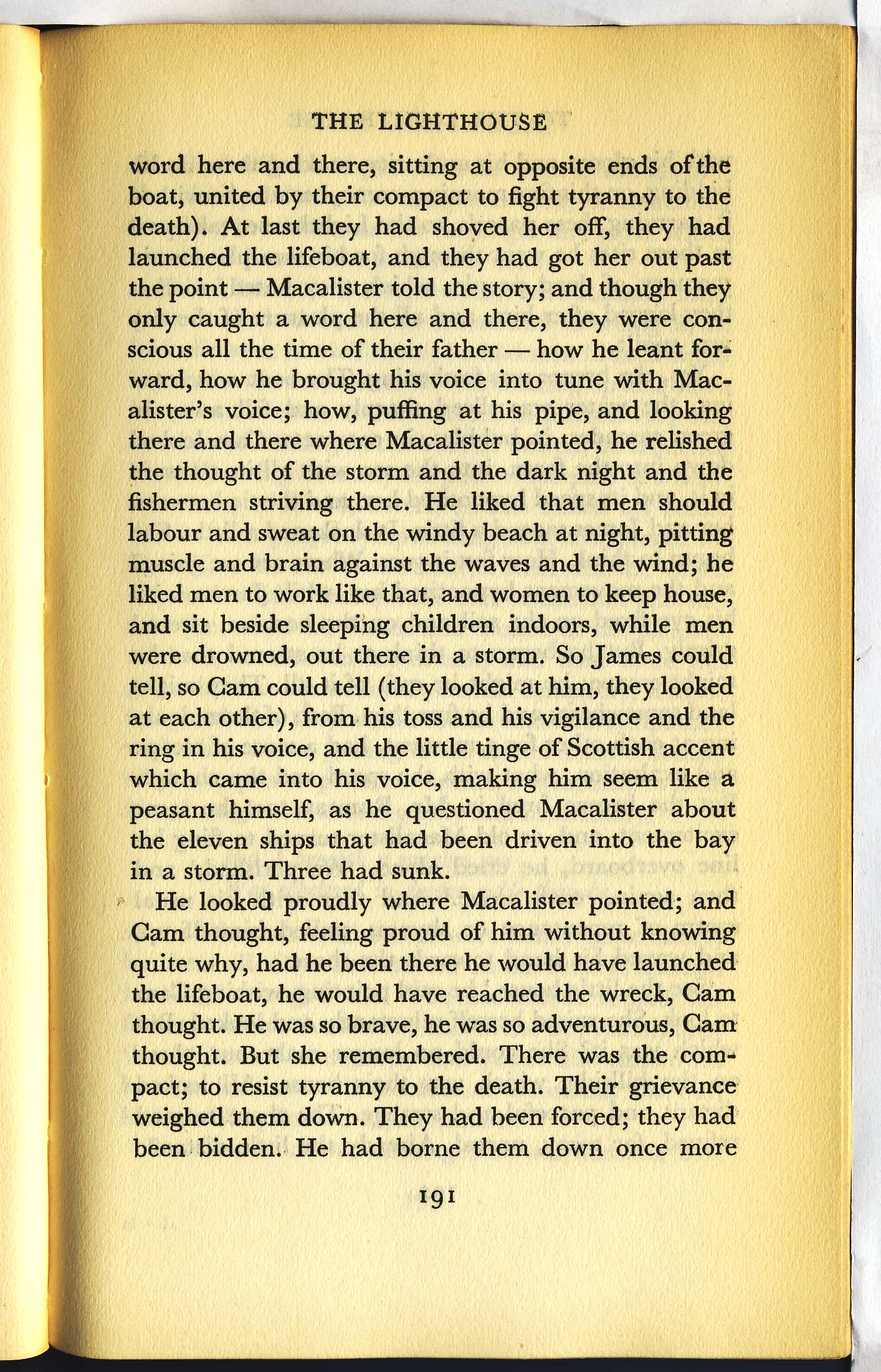
THE LIGHTHOUSEword here and there, sitting at opposite ends of theboat, united by their compact to fight tyranny to thedeath). At last they had shoved her off, they hadlaunched the lifeboat, and they had got her out pastthe point — Macalister told the story; and though theyonly caught a word here and there, they were con-scious all the time of their father — how he leant for-ward, how he brought his voice into tune with Mac-alister’s voice; how, puffing at his pipe, and lookingthere and there where Macalister pointed, he relishedthe thought of the storm and the dark night and thefishermen striving there. He liked that men shouldlabour and sweat on the windy beach at night, pittingmuscle and brain against the waves and the wind; heliked men to work like that, and women to keep house,and sit beside sleeping children indoors, while menwere drowned, out there in a storm. So James couldtell, so Cam could tell (they looked at him, they lookedat each other), from his toss and his vigilance and thering in his voice, and the little tinge of Scottish accentwhich came into his voice, making him seem like apeasant himself, as he questioned Macalister aboutthe eleven ships that had been driven into the bayin a storm. Three had sunk.
He looked proudly where Macalister pointed; andCam thought, feeling proud of him without knowingquite why, had he been there he would have launchedthe lifeboat, he would have reached the wreck, Camthought. He was so brave, he was so adventurous, Camthought. But she remembered. There was the com-pact; to resist tyranny to the death. Their grievanceweighed them down. They had been forced; they hadbeen bidden. He had borne them down once more191









